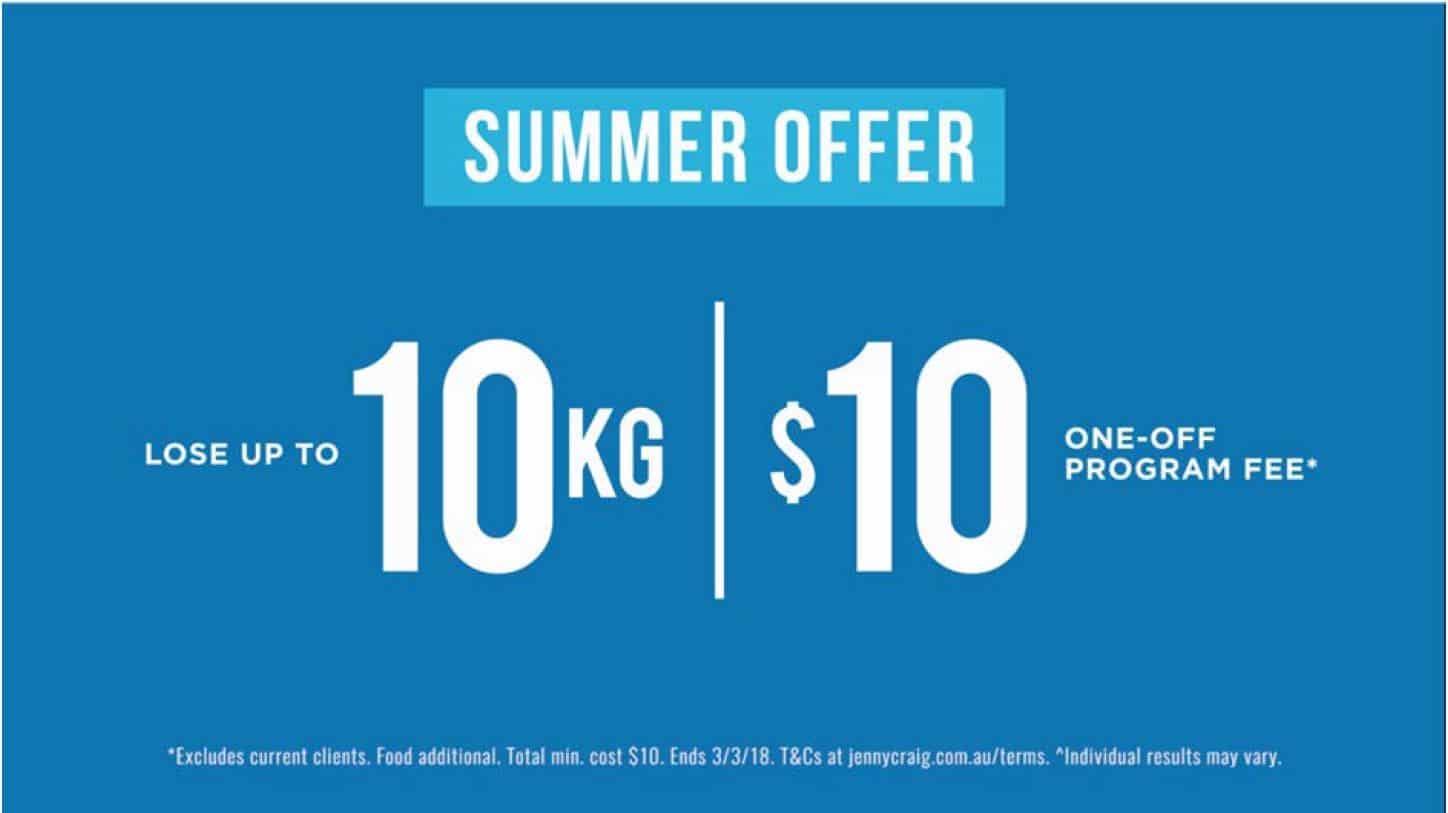By Naomi Stephens (Paralegal) and Amelia Edwards (Lawyer)
Weight loss giant Jenny Craig has paid penalties totalling $37,800 following an investigation by the ACCC into multiple misleading representations made in its lose “10kg for $10” campaign.
What happened?
- Wrongly trimming the informational fat: The campaign ran from December 2017 to February 2018, with advertising stating that customers could lose 10kg for a one-off program fee of $10. The fine print on the ads said (amongst other things) that food was additional, with the T&Cs stating that to achieve the best results, consumers would need to purchase the full menu options provided, at a significant additional cost. According to information currently available on Jenny Craig’s website, the weekly food cost is on average well in excess of $100. Therefore, a claim of “lose up to 10kg for $10” was not an accurate representation as to the true cost of the program – and, as all good marketers should know, fine print isn’t enough to counteract a headline misrepresentation.
- Tainted testimonial: The regulator also took a dim view of a video testimonial on the company’s website. The testimonial was made by a Jenny Craig employee – this (and the potential bias involved) was not disclosed.
- Fishy conditions: The cherry on top of the sugar-free, low-carb cake involved a term in Jenny Craig’s standard membership agreement that, in order to obtain a refund for a faulty item, a customer must notify the company within 3 days and return the faulty product within 10 business days, in its original packaging. This is at odds with Australian Consumer Law, which automatically gives consumers the right to a remedy for a faulty product, regardless of whether they comply with any specified notice and return policies. Not only are those contractual conditions unenforceable, they are also misleading representations.
Quite the infringement menu!
Key lessons
Advertising is a moveable compliance feast, and particular care must be taken to ensure all representations made are accurate and provide all the information consumers need in order to make informed purchasing decisions. The key lessons to learn here are:
- The headline price in an advertisement must genuinely match the product, service, or benefit being described. Don’t bury important information (such as additional necessary costs) in the fine print.
- Published testimonials must be genuine and given by actual customers (though you can get an actor involved in some circumstances).
- If any circumstance suggests a testimonial is not genuine and unbiased (eg because of the relationship between the company and the reviewer, or an incentive provided), then those circumstances need to be clearly disclosed so that consumers can make their own decision about whether they can rely on that testimonial.
- Standard form contracts must not exclude or limit the consumer guarantees under the Australian Consumer Law. Some specific limitations are permitted, but these need to be carefully applied.
We recommend advertisers have their campaigns legally reviewed to ensure all representations made are clear, accurate and legally compliant. As Jenny Craig has no doubt learned, the cost of an infringement notice is significantly more than obtaining this advice!







